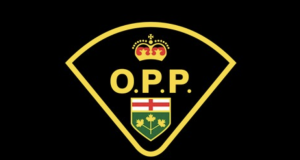The Canada Revenue Agency (CRA) is warning Canadians about getting involved in schemes where promoters, usually tax representatives or tax preparers, are claiming they can get a tax refund for taxpayers relating to the Ontario senior homeowners’ property tax grant (OSHPTG).
What is the OSHPTG?
The OSHPTG is a refundable tax credit that gives tax relief to eligible low- and moderate-income seniors who own and occupy their principal residence. The seniors, or someone on their behalf, must have paid Ontario property tax on their principal residence. The grant is an annual payment that seniors must apply for each year when they file their income tax and benefit return.
Most provinces and territories offer tax credits and or tax relief to seniors. You can find out which credits, benefits or tax relief elements you qualify for by visiting the government of Canada’s provincial and territorial tax credits page, your provincial government’s website or by contacting your province or territory directly.
What are tax schemes?
Tax schemes are plans and arrangements that try to deceive taxpayers by promising to reduce the tax they owe, for example through large deductions or promises of tax-free income. Schemes can also include other creative ways to convince people they could pay less tax.
Be careful. Here’s how the OSHPTG scheme works:
The scheme is targeted to seniors residing in a multi-generational family household that is owned by their children or grandchildren. The promoter, who is usually a tax preparer or tax representative will tell the senior that the promoter can increase the senior’s tax refund. The promoter will suggest that the homeowner transfer an interest in the residence to the senior resident, sometimes without their knowledge. The promoter will then prepare the income tax and benefit returns for the entire household as one financial unit, inappropriately claiming the OSHPTG on the senior’s return by misrepresenting the seniors’ homeownership.
Your actions may have serious consequences
The OSHPTG is not for individuals who do not own their principal residence. If someone claims it is, they are misleading you. Read more about the OSHPTG and have your questions answered.
Those who choose to participate in these schemes and those who promote them face serious consequences, including penalties, court fines, and even jail time.
People who avoid or evade taxes take resources away from social programs that all Canadians benefit from.
All taxpayers, including those who pay tax experts to prepare their income tax and benefit return, are legally responsible for the accuracy of their return.
Remember: It’s your responsibility to keep proof to support any claim you make.
What can you do?
The CRA encourages all Canadians to seek an independent second opinion from a reputable tax professional on important tax matters.
If you suspect someone of promoting or participating in an abusive tax scheme, you can report it online at canada.ca/taxes-leads or by contacting the Informant Leads Centre line at 1-866-809-6841. Steps will be taken to protect your identity. Also, you may provide information anonymously.
In addition, the CRA continues to encourage taxpayers to come forward and correct their tax affairs through the Voluntary Disclosures Program: canada.ca/taxes-voluntary-disclosures.
For more information on tax schemes, please go to canada.ca/tax-schemes.
SOURCE Canada Revenue Agency
- Don’t Stop Now:How immigration & temporary residency have reversed population decline in Northern Ontario - February 14, 2026
- SSM Police – Additional Charges Laid in Ongoing Sexual Assault Investigation - February 14, 2026
- Canada invests over $75,000 to support global maple syrup conference in Northern Ontario - February 14, 2026
 Wawa-news.com Local and Regional News
Wawa-news.com Local and Regional News

